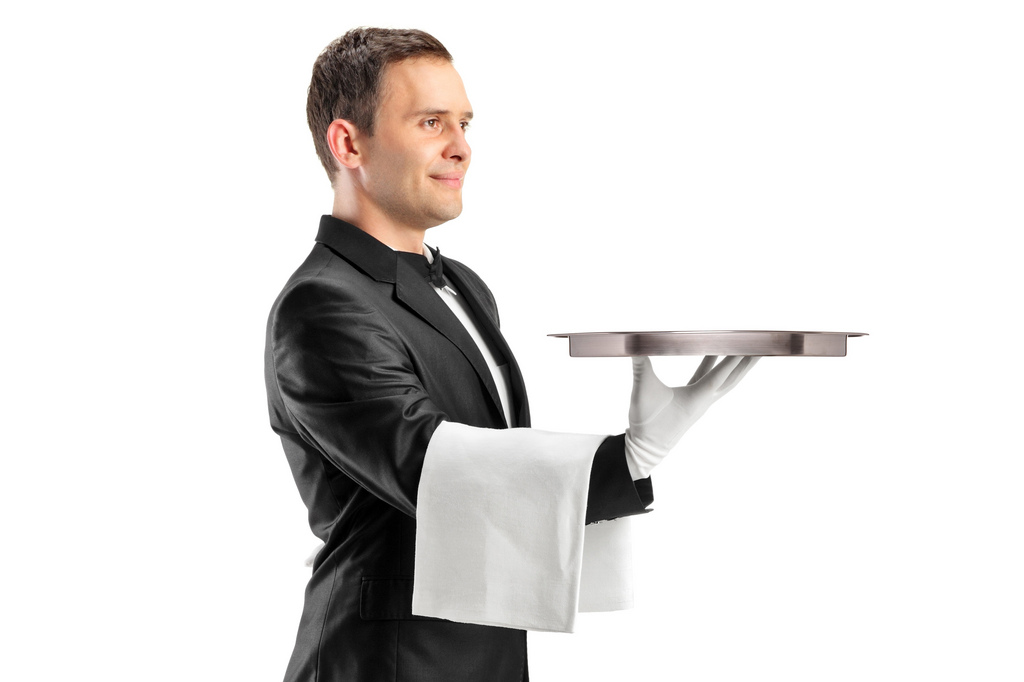Have we reached the (non-)tipping point? A restaurant in Pittsburgh seems to think so. Bar Marco recently announced that starting in April, they won’t be accepting any gratuities. Instead, their employees will all get a salary of $35,000 that comes with full health benefits and 500 shares in the restaurant to become part owners. The shares are originally worth $1 each when they vest (after three months) and the value increases from there. In contrast, most restaurant servers in Pennsylvania get minimum wage ($2.83 for tipped workers) plus their tips. Welcome to the new age?
This isn’t news to Europeans. Most servers in the restaurant mecca of France thrive as salaried employees. In fact, many non-Americans bristle at having to tip in American restaurants — and, conversely, many American servers complain loudly about the tipping practices of foreign visitors. Quite honestly, American Tip Culture is out of control. I’ve touched on it before in regards to tipping at hotels and the response was overwhelming. Restaurants in the US have gone as far as throwing automatic service charges on bills for customers and there’s even a restaurant in LA (Alimento) that recently added an additional tip line if you feel like tipping the cooks in addition to your waiter. That’s absolutely nuts in my opinion.
What Bar Marco is doing is to be commended. They realized that servers, by and large, can’t survive on their tips alone. In California, servers get a regular minimum wage of $9 plus tips, so they’re doing pretty well, but servers in the rest of the country aren’t quite as lucky. Many of them work less than a full work week, which means no health care from their employer, and they don’t have a consistent idea of how much they’ll make from week to week. Restaurants get slow for all kinds of reasons: weather affects business, there’s a big football game, it’s the new year and people are trying to eat healthy. All kinds of other factors are at play in the financial health of a restaurant and that affects their employees. I should know. I worked in restaurants from the day I turned 14 all the way through college. My tips could vary from $40 to $150 based on the night and I had no way to control it. By offering a salary, Bar Marco is giving their employees stability and that’s wonderful.
They’re also making an investment in the long-term future of the restaurant. Restaurant jobs have a ridiculously high turnover rate. By offering a salary and a regular work week — employees at Bar Marco work 40-44 hours a week with one night and two days off (note: the restaurant is closed on Sunday, so everyone gets that as another day off) along with 10 paid vacation days — the owners are sending a clear message that working at their place is a career, not just a temp job. That hopefully means employees will be in it for the long haul and be much more loyal to their place of employment.
I love this move. I hope it catches on with restaurants all over America. Why put the onus on the diner to pay the server when their employees of the restaurant? Good service should be expected and if a server isn’t good, they should be fired like all other under-performing employees are. For too long restaurants have gotten away with passing the bill onto customers and I’m happy to see that Bar Marco is taking the lead by taking care of their employees.
Photo:![]() Some rights reserved by www.audio-luci-store.it
Some rights reserved by www.audio-luci-store.it


Imagine the shock on the faces of waitstaff when they realize they have to pay taxes on $35k instead of $5k.
That’ll be fun.
This is great, but let’s be clear: if an employee does not make the minimum wage with tips, his/her employers are already required to make up the difference. Of course, almost no one can live on a minimum wage, so that’s not saying much.
But again, great news!
That would be weird, if the whole US restaurant scene switched to that model.
Currently, we Europeans are used to tip more when being in the US than at home.
After such a change we would have to get used to the idea that there would be no tipping at all in the US. Unlike here, where tipping is very common.
Yes, the employer should pay the waitstaff. But what is so wrong about voluntarily giving service staff something extra? We do it as a sign of how we appreciate good service.
And my experience is that, usually, service and friendliness in American restaurants is a whole lot better than here in Germany, for example.
I agree that voluntarily giving service staff is a nice gesture, but we rarely do it in other arenas. When an employee at a shoe store helps you find the perfect pair of boots, I doubt many people are leaving them a tip. It’s just odd that we’ve gone so far into the idea of tipping food service employees here in America that we’re expected to tip even when someone just punches buttons into a cash register at a bakery. Glad you found friendliness here on your travels in America!
Oh, and it’s a shame that American servers have a reason to complain about tipping practices of foreign visitors. Is it so hard to be informed about tipping practices in a country to be visited?
I don’t know any visitor guide which does not state what is usually appropriate.
Well, while we (my girlfriend and me) understand that the 15-20 percent range is pre-tax, we apply it to the post-tax sum.
So I don’t think we are foreign visitors who give reason for complaints when it comes to tipping restaurant servers.
Great points, Ralf. You definitely sound like foreign visitors that would be appreciated.